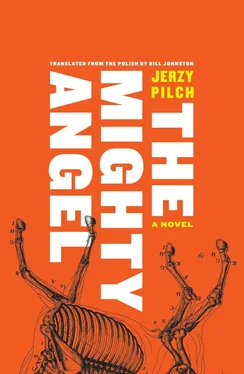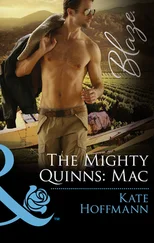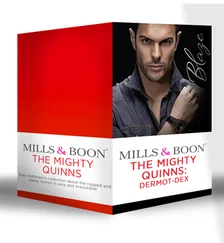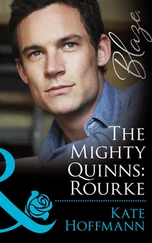Chapter 8. Christopher Columbus the Explorer
TOWARD THE END OF each stay on the alco ward I had always managed to manufacture around myself a certain order; even if it was the order of a closed ward it was still order, and the transition from the order of a closed ward to the disorder of the open world, or, to put it in plain terms, the return home from the hospital, was impossible for me without fortifying myself with a couple of stiff ones.
“Classic exit stress,” Dr. Granada would have said. “You’re unable to handle the exit stress. You look as if you’re exiting in good shape, but you’re unable to handle the exit stress.”
It was true, I was incapable of handling the exit stress, and so I would reduce the exit stress to a minimum. The cab ride from the alco ward took about twenty minutes, then afterwards, after the torment of the cab ride, after drinking four stabilizing doubles and equipping myself with a bottle of vodka, I would cease suffering from exit stress, I would cease suffering from stress in general, and if I started to feel a little worse, I would have a drink and feel better, and that was all, that was the entire philosophy, the entire philosophy of drinking.
“There is no philosophy of drinking.” Christopher Columbus the Explorer, my roommate, would repeat with the professional intonation of an impatient lecturer while turning around on his bed, taking off his eyeglasses, and setting his French translation of the New Testament on his bedside table: “There is no philosophy of drinking, there’s only the technique of drinking.”
Christopher Columbus the Explorer had been sailing across a sea of darkness for at least twenty years; when he accidentally swallowed even a single shot of the boundless expanse of oceanic waters, he invariably descended into a murderous unending jag. Two weeks earlier he had been brought in in his death throes, not to the alco ward even, but to the Intensive Care Unit on the floor below; he had been laboriously treated for, and miraculously restored from, first delirium and then epilepsy. By now he was more or less himself. During the day he would go for a walk down the hallway with the French translation of the New Testament under his arm, and through his words and actions he would convey the fact that he was mightily disappointed with conditions at the boarding house, to which he had repaired for the purpose of restoring his overtaxed nerves.
At night, however, his helpless body was incapable of assuming any position; the muscles of his arms and legs, purged entirely of magnesium, kept seizing up in spasms. Though I was knocked out with powerful doses of hemineurin, I would be jolted awake. Columbus the Explorer would be twitching on his bed in a manner that was entirely devoid of style; if there was any style whatsoever in his convulsions, it was the style of death throes. I was convinced he was dying, at least that was what it looked like, and it even looked worse — the spasms of death throes are surely gentler.
I would call the doctor and the nurse. Nurse Viola would administer an injection of magnesium and various other minerals and provide vitamins and sedatives, and Dr. Granada would lean over Columbus the Explorer as the latter strove in vain to subdue the trembling of his own body, and he would say:
“How are you feeling, professor?”
•
In civilian life, when he was sober, aside from his incarnation as a drunkard, aside from his role as a conscript of liquor, aside from his alcoholic calling (ah, what ingenious pyramids of extraordinary drinking metaphors you are capable of erecting, my addicted tongue!), Columbus the Explorer in normal life was a tenured professor of the social sciences. He had climbed every rung of the university career, he had taught abroad for several years, he spoke foreign languages, and, with the full rationality of an enlightened scholar and all the adherence to principle of a person who for years has spoken ex cathedra , he asserted that he did not have the slightest problem with drinking.
“How are you feeling, professor?”
“Fine, fine,” gibbered Columbus the Explorer, “fine, there’s nothing wrong with me, it’s just a momentary weakness.”
“And where do you think the weakness comes from, what caused it?”
“I honestly haven’t the faintest idea. Maybe I’m overworked, exhausted — I’ve been so busy lately.”
Nurse Viola, still sleepy after having been wrenched from her shallow doze on duty, though already icily and professionally efficient, still had about her the allure of a just-woken woman. The imperceptible shadow of a smile, or perhaps of a look of repugnance, flitted across her magnificent cheekbones.
“Do you not think, professor”—in Dr. Granada’s voice there wasn’t a hint of irony or double meaning—“do you not think, professor, that your condition might reasonably be connected to a certain, so to speak, overuse of alcohol by yourself?”
“Out of the question, that’s absolutely impossible. I hardly drink at all; sometimes a toast on special occasions, or a glass of decent beer over dinner. .”
“In any case, if I understand correctly”—in the bright skies of Dr. Granada’s voice dark clouds would slowly be starting to gather—“if I understand correctly, your stay in the hospital, your feeling unwell, is not in any way connected with alcohol?”
“Not in any way,” Columbus the Explorer would eagerly concur, though he was already speaking more hesitantly. “Not in any way,” he would repeat after seeming to reflect; he paused, attempting with the lines of his face to imitate an unexpected consideration—“although, although, now I think of it. .” His body was gradually freeing itself of convulsions, and his entire figure conveyed an ever more distinct willingness to make small concessions.
“Now you think of what, professor?”
“That’s right, now that I think of it, it’s possible that at the last family celebration I may indeed have had one glass too many.”
“Your diagnosis staggers me in its accuracy,” Dr. Granada would say calmly; then he would instantly burst out in a furious roar: “One glass too many! He had one glass too many! This walking pail of liquor had one glass too many! He admits he may have gone a little too far!”
In a smooth movement, practiced on thousands of recovered patients, Nurse Viola took the doctor’s arm in one hand, put the other around his waist, and led him toward the door, while he continued to bellow like a madman:
“He had one glass too many! An absolute sensation! He’s discovered America! Christopher Columbus the Explorer has discovered America!”
Chapter 9. The Principles of Elusiveness
I WAS NOT BOTHERED by Christopher Columbus’s drunken self-deception. One cannot properly drink without self-deception: the lips have to deny the liquor that just passed down the throat. It was surely for the relief of drunkards that the Lord God did not write upon the stone tablets the commandment: thou shalt not lie. The word has to deny the addiction. Among the tribe of alcoholics, lying is a badge of honor — the truth is first an indiscretion, later an affront, and finally a source of despair. If you truly drink, you have to announce to all and sundry that you do not drink; if you admit you drink, that means you do not truly drink. True all-out drinking has to be concealed; anyone who reveals it is giving in, confessing to helplessness, and all that remains for him is weeping, the gnashing of teeth, and the twelve-step program.
Whenever I tell you that I’ve stopped drinking, that I don’t drink, that after all these decades I’ve sobered up for good, that I’ve regained my sense of time, that I spent weeks recovering in an ice-cold house in the mountains — you can always calmly disbelieve me. Truly, you shouldn’t believe a single word I say. The word is my stimulant, my narcotic, and I’ve acquired a taste for overdosing. Language is my second — what am I saying, second — language is my first addiction.
Читать дальше












